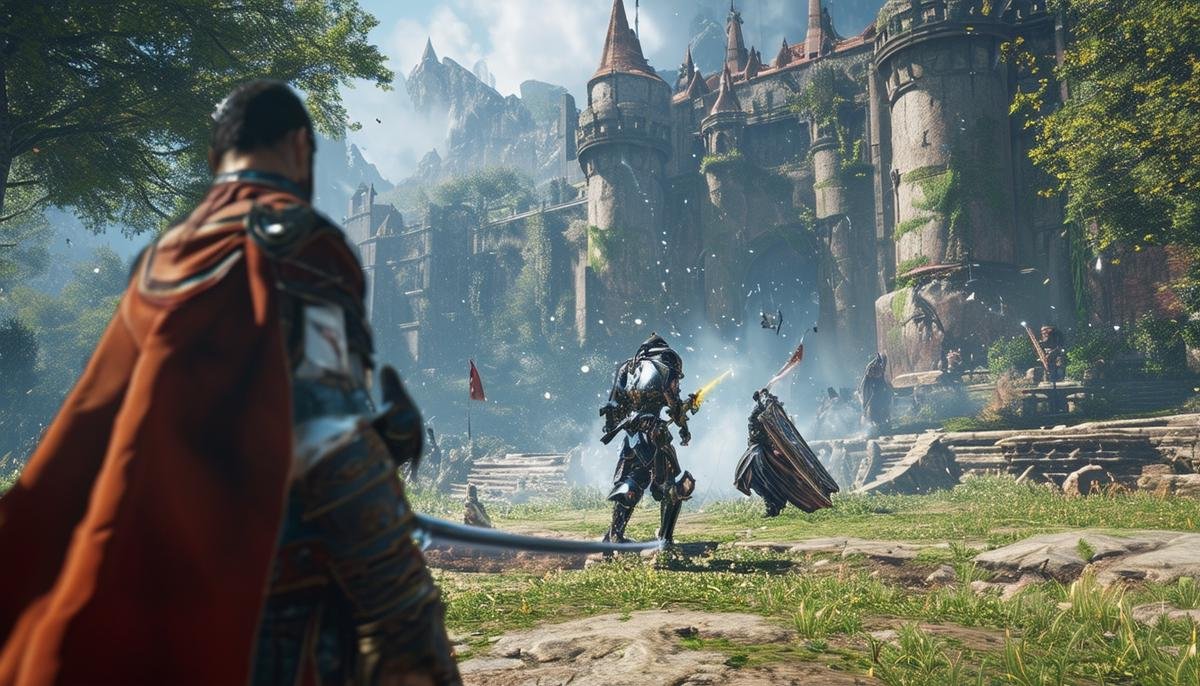Understanding AI in Gaming
AI in video games enhances realism and player experience through algorithms and computational intelligence. Early games used simple rule-based systems, but modern games employ machine learning and deep learning techniques. AI now creates vast game worlds, improves NPC behavior, and personalizes gameplay.
Procedural content generation uses AI to create environments, quests, and characters dynamically. Games like No Man's Sky showcase this by generating a universe with billions of unique planets. AI also revolutionizes NPCs, giving them more human-like behaviors and the ability to remember past encounters, as seen in Middle-earth: Shadow of Mordor's Nemesis System.
AI enhances player engagement through adaptive difficulty levels and personalized experiences. Games like Left 4 Dead adjust in real-time based on player performance. In The Elder Scrolls V: Skyrim, NPCs make decisions based on player actions, creating a dynamic world.
AI assists in game design through automated testing and debugging, streamlining development. It also improves virtual and augmented reality experiences with gesture recognition and spatial awareness algorithms.
Ethical considerations include:
- Data privacy
- Algorithmic bias
As AI technology advances, gamers can anticipate more responsive and immersive experiences.

AI in Game Development
AI has become essential in game development, enhancing both complexity and quality. It excels in creating realistic game worlds through procedural content generation, allowing developers to construct expansive environments that evolve dynamically. This is evident in games like Minecraft, which offers virtually infinite, unique terrains.
AI-driven NPCs exhibit sophisticated behaviors, learning from player interactions and adapting their strategies. In games like The Witcher 3: Wild Hunt, NPCs have daily routines and respond differently based on player actions, enhancing realism.
Beyond world-building, AI generates meaningful content within games, such as quests and missions. It also aids in refining games through automated testing, identifying bugs and balancing issues more efficiently than human testers.
Generative AI tools assist in creating art assets and soundscapes, accelerating the development process. Looking ahead, AI may enable:
- Adaptive storytelling
- More autonomous NPCs
- Enhanced game complexity
- Improved player engagement

Enhancing Player Experience with AI
AI significantly improves player experience by personalizing gameplay and creating smart NPCs and opponents. Adaptive difficulty systems, like the AI Director in Left 4 Dead, adjust game elements based on player performance, maintaining engagement without frustration.
AI-driven NPCs provide more realistic and strategic interactions. The Nemesis System in Middle-earth: Shadow of Mordor exemplifies this, with enemies remembering past encounters and evolving their tactics. In games like The Elder Scrolls V: Skyrim, NPCs contribute to the story dynamically, reacting to player actions and fostering a sense of a living world.
In strategy games, AI opponents employ advanced tactics, adapting mid-game to provide fresh challenges. AI can also offer personalized in-game assistance, analyzing player behavior to provide tailored tips or resources.
These AI-driven elements significantly impact player engagement and satisfaction, ensuring games remain challenging and enjoyable across multiple playthroughs.

AI in Virtual and Augmented Reality Games
AI enhances virtual and augmented reality (VR and AR) games by creating more engaging environments, enabling gesture recognition, and ensuring spatial awareness. In VR, AI algorithms dynamically generate and adapt environments based on player actions, simulating realistic elements like weather patterns that affect gameplay.
For AR, AI analyzes real-world environments to seamlessly overlay virtual elements, making augmented experiences feel more integrated. Gesture recognition, powered by AI, allows for more natural interactions in both VR and AR, translating player movements into in-game actions without traditional controllers.
AI also manages spatial awareness, crucial for maintaining immersion and preventing motion sickness in VR. In AR, it enables accurate placement and interaction of virtual objects within the real world.
While AI in VR and AR faces challenges like computational demands and the need for low latency, it significantly enhances immersion and interactivity. As technology advances, we can expect even more seamless and realistic experiences in these platforms.

Challenges and Ethical Considerations
Incorporating AI into video games presents various challenges and ethical considerations:
- Data privacy: AI-powered games often collect and analyze player data to deliver personalized experiences. Developers must implement strong data encryption and anonymization techniques to protect player information.
- Security: As AI systems become more complex, the potential for vulnerabilities increases. Regular security audits and updates are essential to mitigate risks and ensure a safe gaming environment.
- Bias: If training data contains biases, these can be reflected in the game, leading to unfair behaviors by NPCs or other AI-driven elements. Developers must rigorously test and refine their AI systems to identify and mitigate biases.
- Regulatory compliance: Different regions have varying regulations concerning data privacy, security, and consumer protection. Developers must stay informed about the latest regulations and ensure their games adhere to these standards.
- Fairness and inclusivity: Designing fair and inclusive AI systems involves considering factors such as accessibility for players with disabilities, cultural sensitivities, and avoiding stereotypes.
- Transparency: Clear communication about data collection practices, AI-driven features, and measures taken to ensure fairness and security can help build player trust.
- Psychological effects: Developers should consider the potential psychological impacts of AI-driven experiences. For instance, adaptive difficulty systems need to be balanced to provide a satisfying yet manageable challenge for player well-being.

The Future of AI in Gaming
The future of AI in gaming holds potential for more sophisticated and immersive experiences:
- Advanced content generation: AI systems will create intricate stories, quests, and character interactions. Procedural generation techniques will allow for vast, diverse environments that react to player actions and choices.
- Intelligent NPCs: More autonomous NPCs will exhibit complex behaviors, learning and adapting to player actions in real-time, resulting in more realistic interactions and a greater sense of immersion.
- Ethical and inclusive design: Developers will need to ensure that AI systems are fair and unbiased, providing an enjoyable experience for all players.
- Player well-being: AI could enhance player well-being by monitoring engagement and providing personalized recommendations to promote healthy gaming habits.
- VR and AR integration: The integration of AI in virtual and augmented reality will offer more immersive experiences, enabling natural interactions through gesture recognition and spatial awareness.
- Democratization of game development: As AI technology becomes more accessible, smaller studios and indie developers will be able to create high-quality games with innovative mechanics and rich content, leading to a more diverse gaming landscape.

As AI technology advances, its role in gaming continues to expand, creating more immersive and engaging experiences for players. From intelligent NPCs to adaptive game worlds, AI is set to change the way we interact with video games, offering new levels of personalization and realism.




